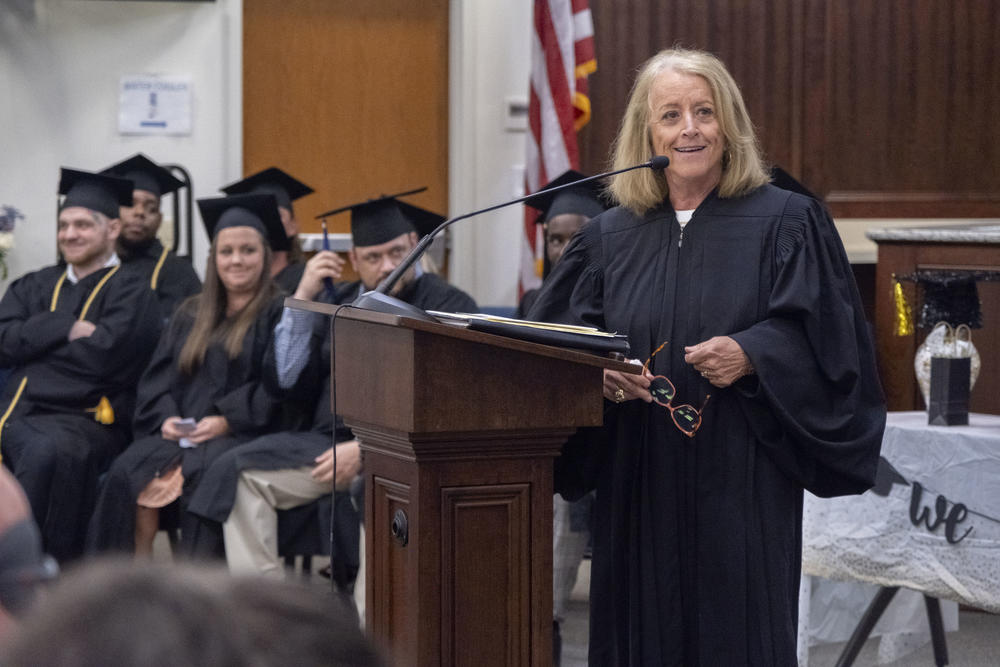
Caption
Graduates celebrate their completion of the Ocmulgee Circuit Adult Treatment Court Collaborative with a ceremony on July 25, 2024.
Credit: Sofi Gratas/GPB News
|Updated: August 16, 2024 9:03 AM
LISTEN: In late July, family and friends gathered in a government building in Eatonton to celebrate graduates of the Ocmulgee Judicial Circuit Adult Treatment Court Collaborative. GPB's Sofi Gratas was there to capture this audio postcard.

Graduates celebrate their completion of the Ocmulgee Circuit Adult Treatment Court Collaborative with a ceremony on July 25, 2024.
In late July, family and friends gathered in a government building in Eatonton to celebrate graduates of the Ocmulgee Judicial Circuit Adult Treatment Court Collaborative.
The collaborative falls under Georgia’s many accountability courts, which offer an alternative to prison time for people with non-violent offenses.

Judge Brenda Trammell of the Ocmulgee Judicial Circuit welcomes friends and family to the Adult Treatment Court Collaborative graduation on July 25, 2024. "It's intensive, and it is difficult, but we do feel that it is changing lives," said Trammel.
“Ordinarily these people are in jail, so it's voluntary,” said Judge Brenda Trammell, one of the three judges in the circuit that oversee participants in the program. “They have to talk to their lawyers about whether or not they want to be in this program.”

Graduates celebrate their completion of the Ocmulgee Circuit Adult Treatment Court Collaborative with a ceremony on July 25, 2024.
Covering eight counties in Middle Georgia, the Ocmulgee Judicial Circuit offers a drug court track and mental health court track. Programs last a minimum of two years. If accepted, participants commit to weekly drug tests, community service, monthly court appearances and to completing requirements for a GED.
Overseen by local judges, law enforcement, public defenders and case managers, the idea is that those often swept into a cycle of incarceration can be rerouted out of the state's jails and prisons and, instead, into reform.
According to an economic impact study conducted by the state, those that do make it to graduation are far less likely to re-enter incarceration and addiction. Around 1,500 people graduate from Georgia’s accountability court programs every year.
Georgia Health Initiative is a non-partisan, private foundation advancing innovative ideas to help improve the health of Georgians. Learn more at georgiahealthinitiative.org